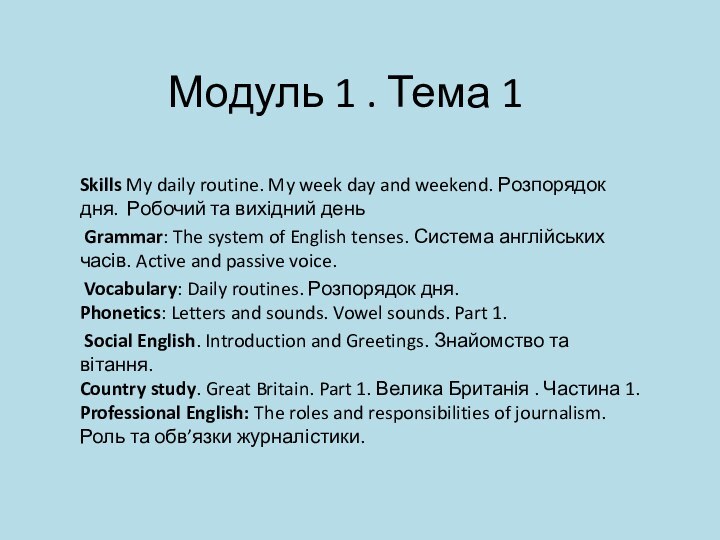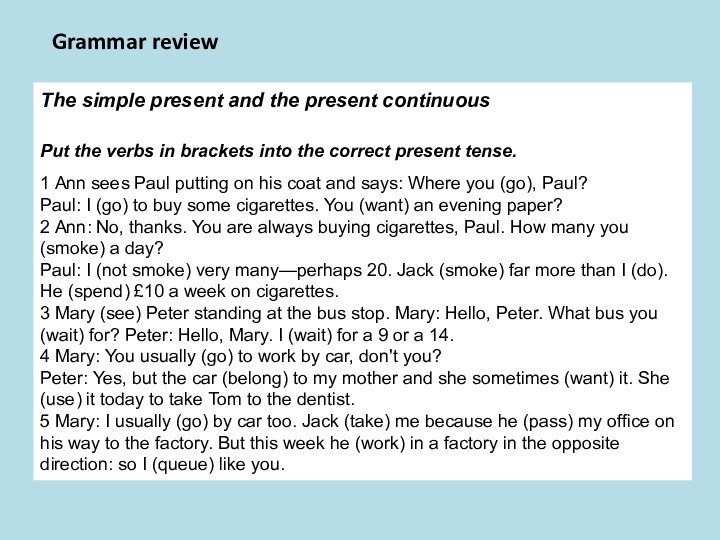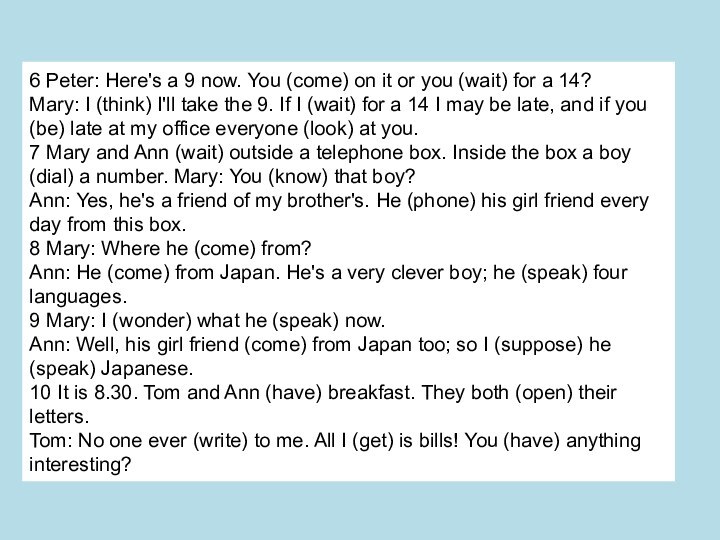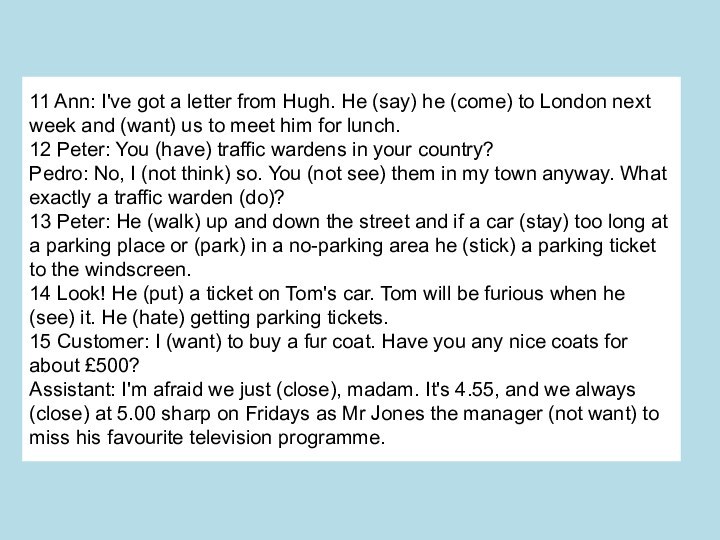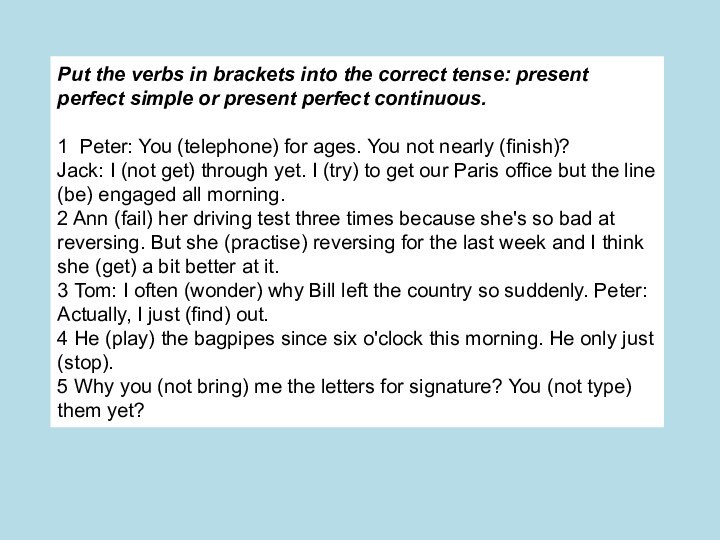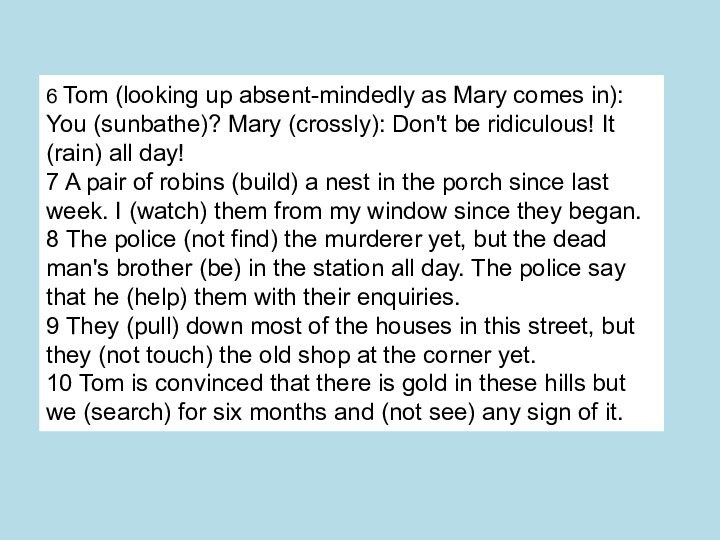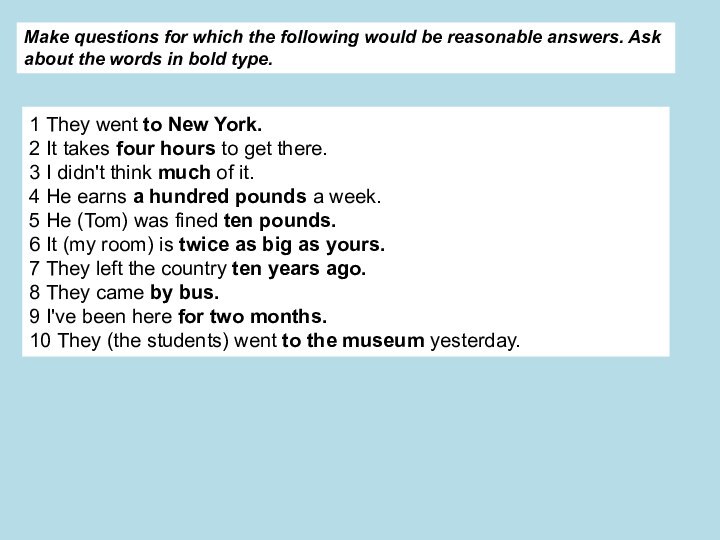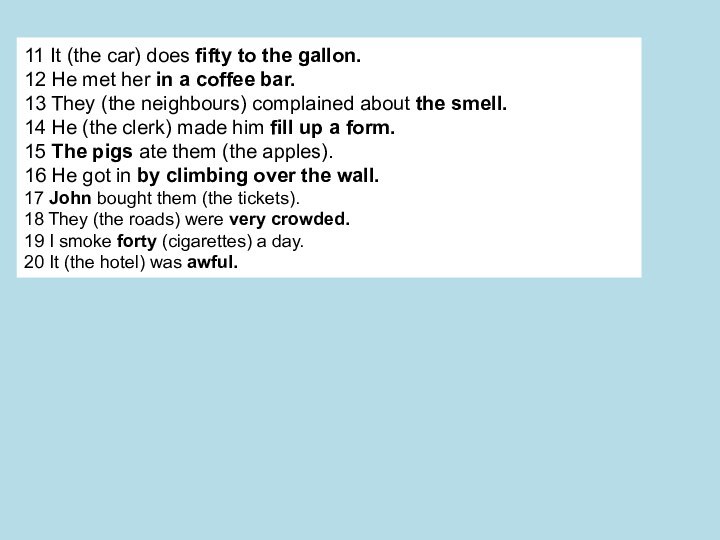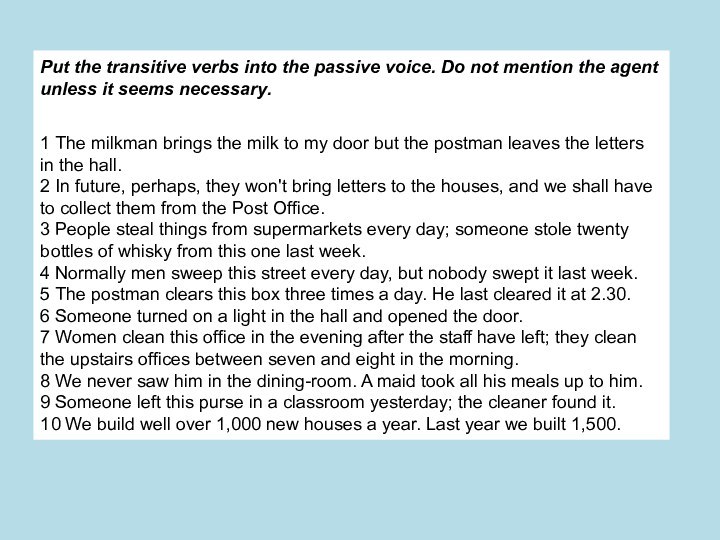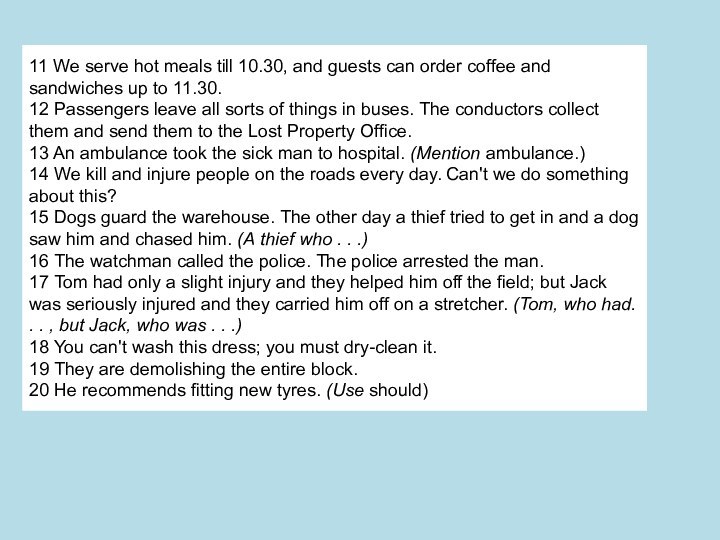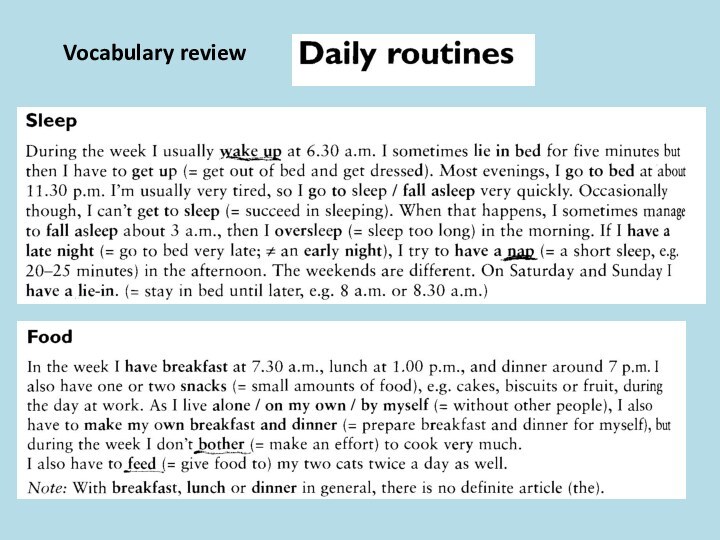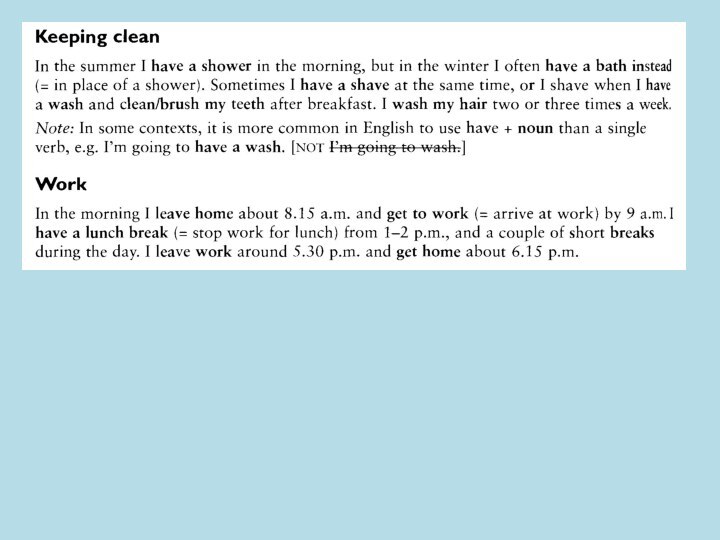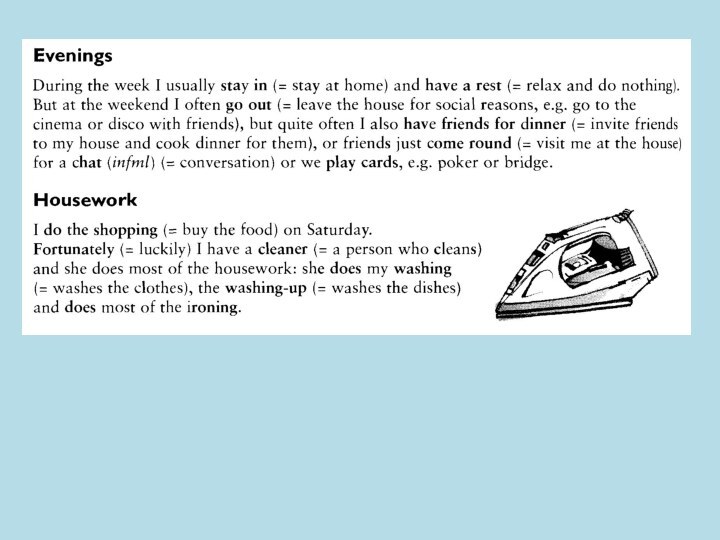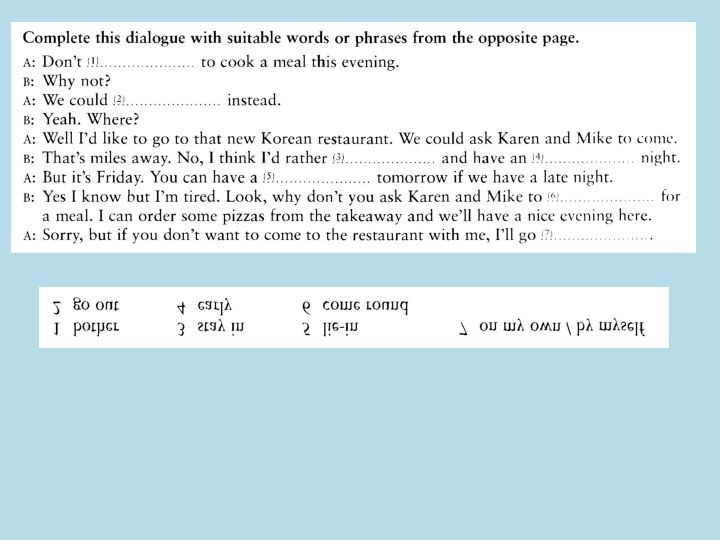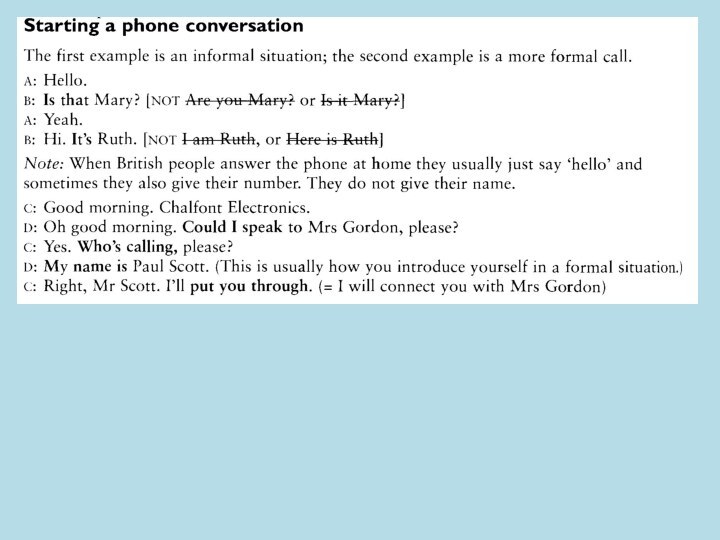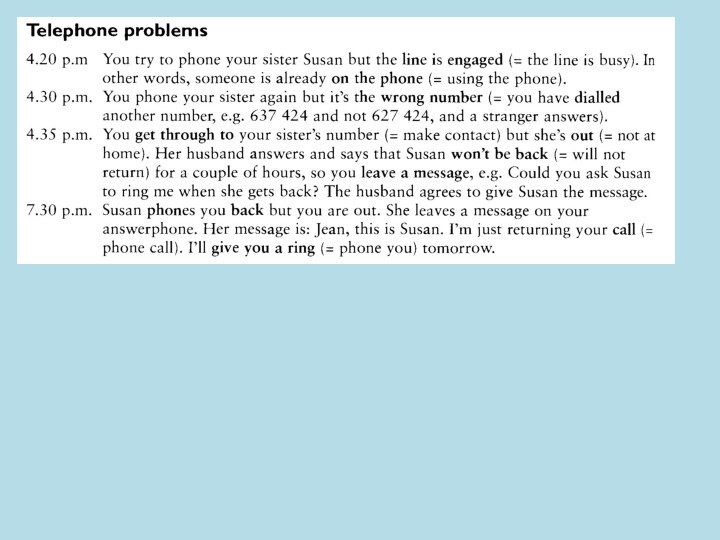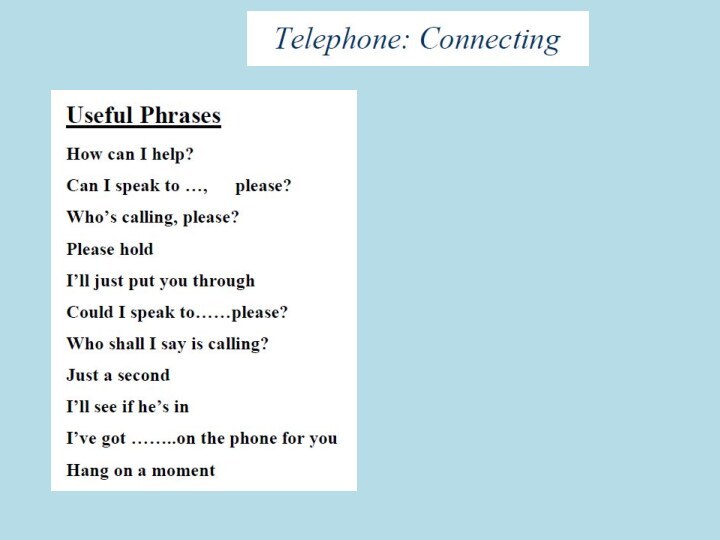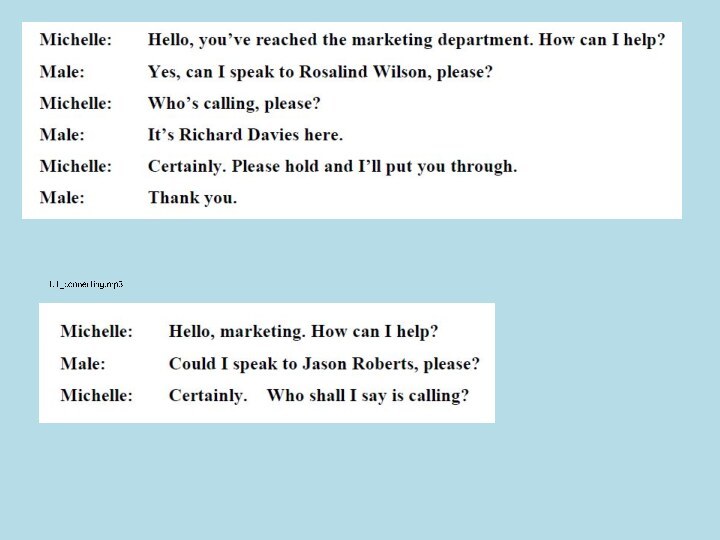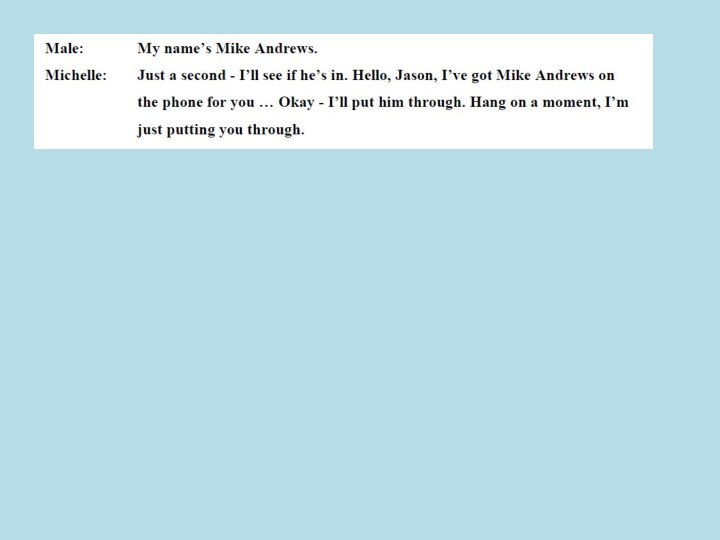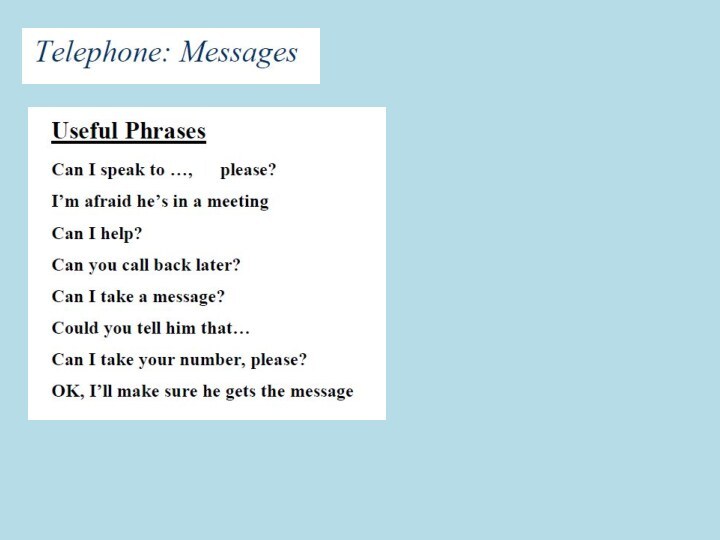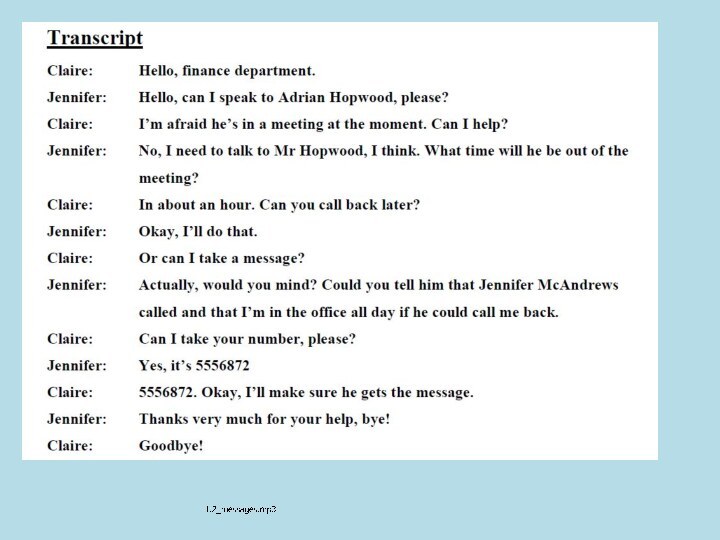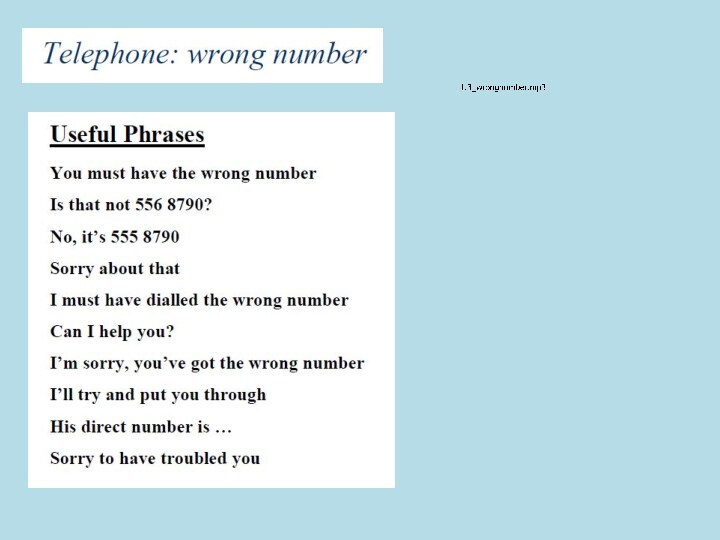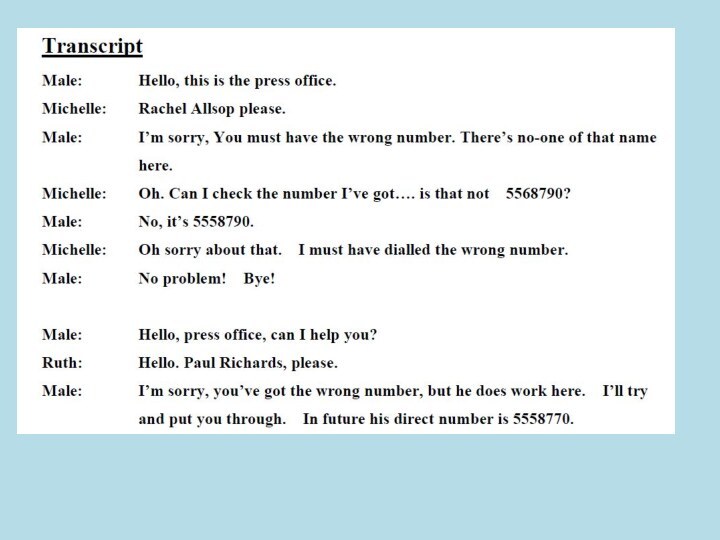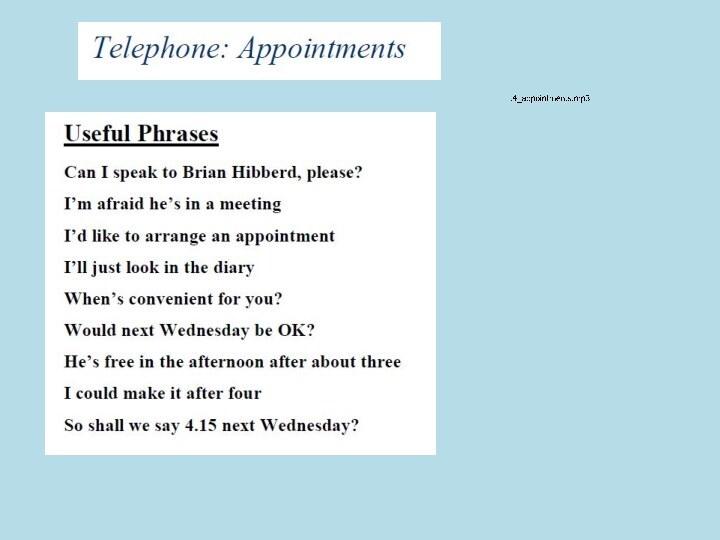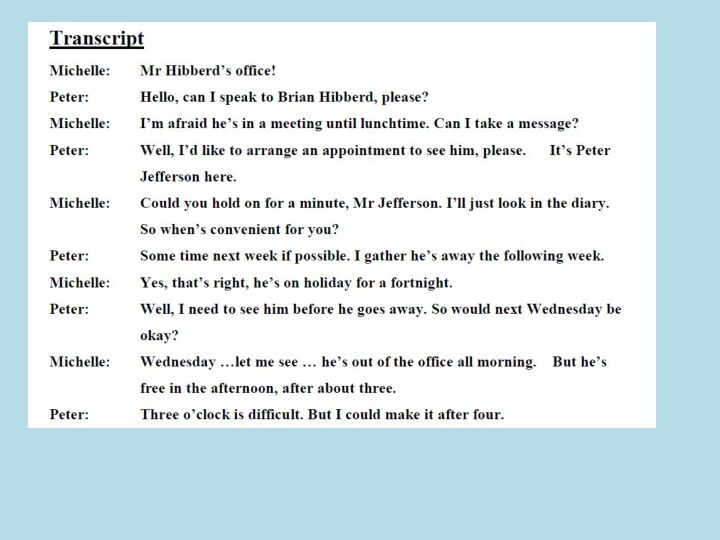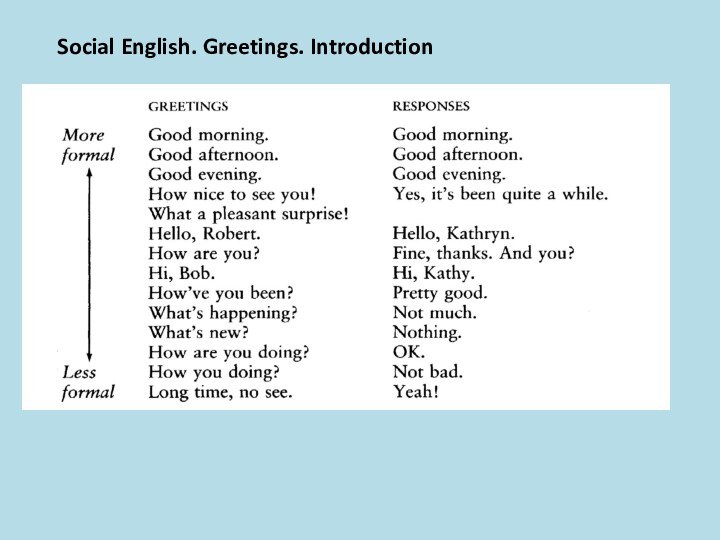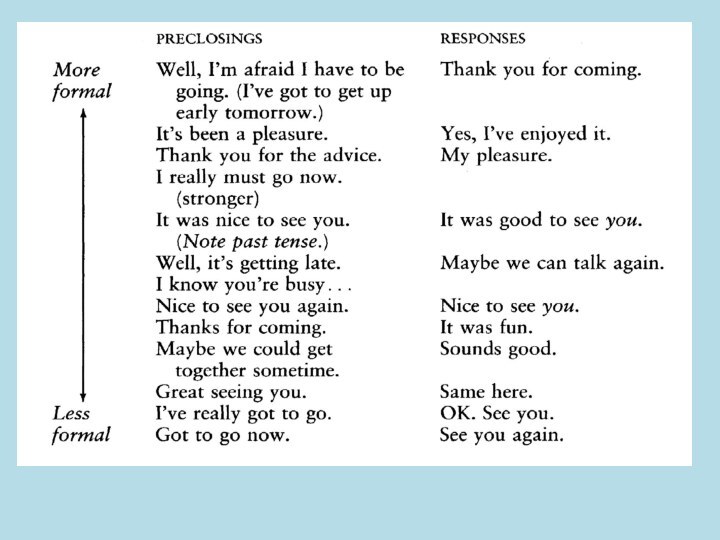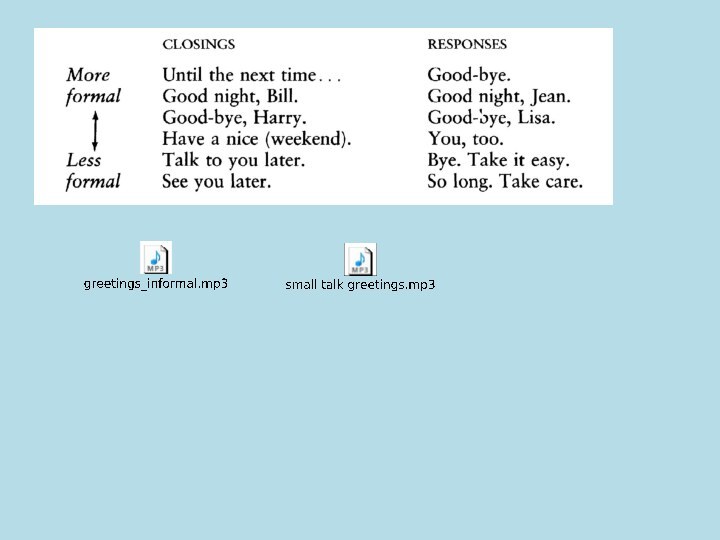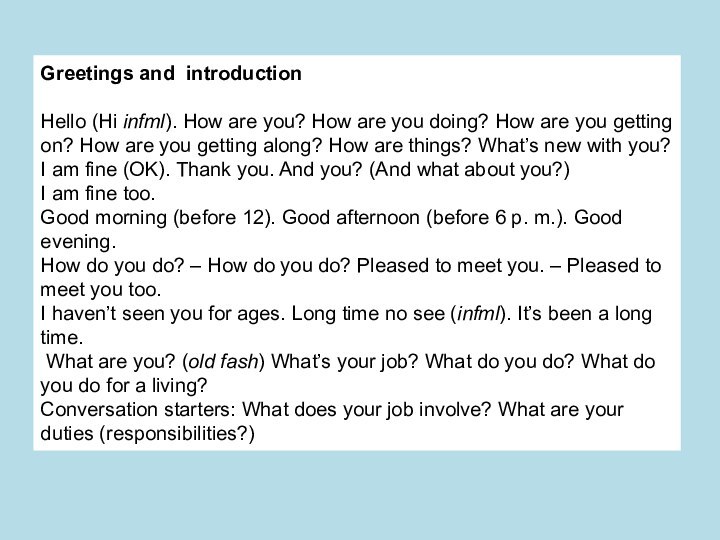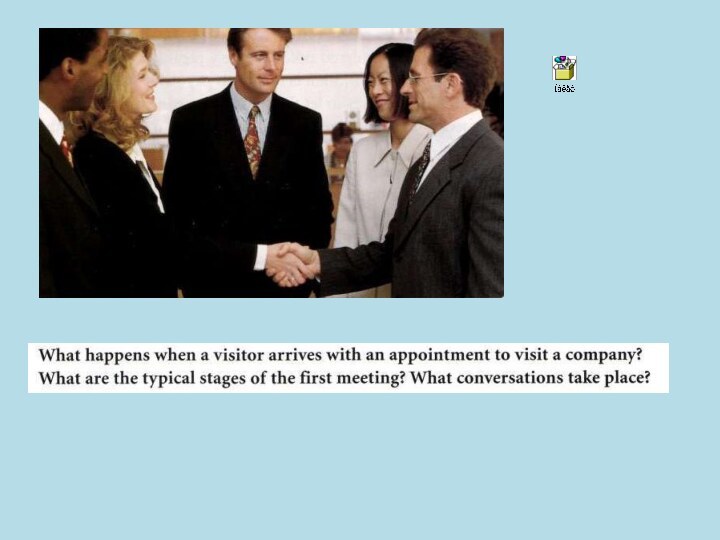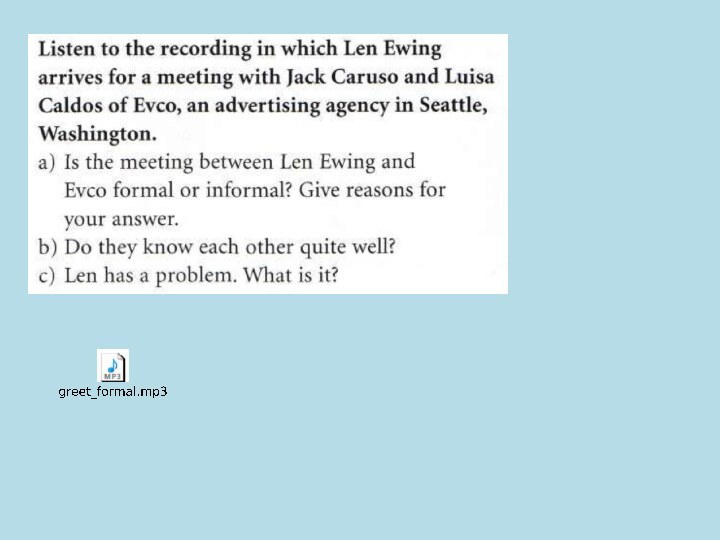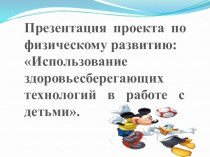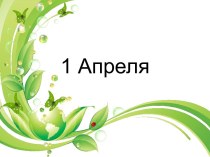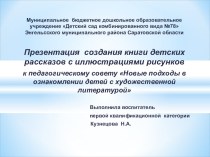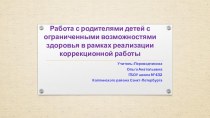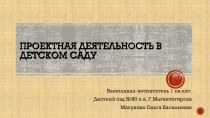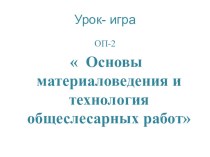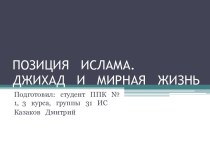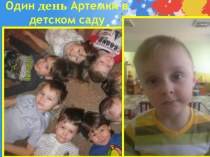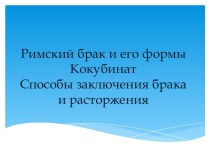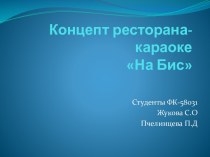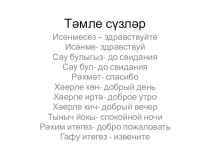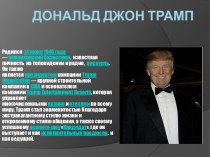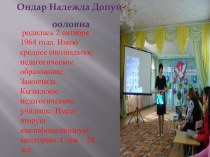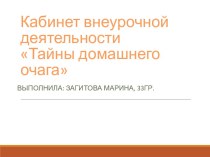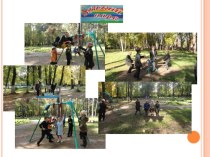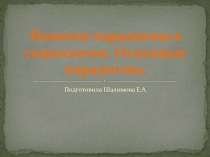Слайд 2
Grammar review
The simple present and the present continuous
Put
the verbs in brackets into the correct present tense.
1
Ann sees Paul putting on his coat and says: Where you (go), Paul?
Paul: I (go) to buy some cigarettes. You (want) an evening paper?
2 Ann: No, thanks. You are always buying cigarettes, Paul. How many you (smoke) a day?
Paul: I (not smoke) very many—perhaps 20. Jack (smoke) far more than I (do). He (spend) £10 a week on cigarettes.
3 Mary (see) Peter standing at the bus stop. Mary: Hello, Peter. What bus you (wait) for? Peter: Hello, Mary. I (wait) for a 9 or a 14.
4 Mary: You usually (go) to work by car, don't you?
Peter: Yes, but the car (belong) to my mother and she sometimes (want) it. She (use) it today to take Tom to the dentist.
5 Mary: I usually (go) by car too. Jack (take) me because he (pass) my office on his way to the factory. But this week he (work) in a factory in the opposite direction: so I (queue) like you.
Слайд 3
6 Peter: Here's a 9 now. You (come)
on it or you (wait) for a 14?
Mary: I
(think) I'll take the 9. If I (wait) for a 14 I may be late, and if you (be) late at my office everyone (look) at you.
7 Mary and Ann (wait) outside a telephone box. Inside the box a boy (dial) a number. Mary: You (know) that boy?
Ann: Yes, he's a friend of my brother's. He (phone) his girl friend every day from this box.
8 Mary: Where he (come) from?
Ann: He (come) from Japan. He's a very clever boy; he (speak) four languages.
9 Mary: I (wonder) what he (speak) now.
Ann: Well, his girl friend (come) from Japan too; so I (suppose) he (speak) Japanese.
10 It is 8.30. Tom and Ann (have) breakfast. They both (open) their letters.
Tom: No one ever (write) to me. All I (get) is bills! You (have) anything interesting?
Слайд 4
11 Ann: I've got a letter from Hugh.
He (say) he (come) to London next week and
(want) us to meet him for lunch.
12 Peter: You (have) traffic wardens in your country?
Pedro: No, I (not think) so. You (not see) them in my town anyway. What exactly a traffic warden (do)?
13 Peter: He (walk) up and down the street and if a car (stay) too long at a parking place or (park) in a no-parking area he (stick) a parking ticket to the windscreen.
14 Look! He (put) a ticket on Tom's car. Tom will be furious when he (see) it. He (hate) getting parking tickets.
15 Customer: I (want) to buy a fur coat. Have you any nice coats for about £500?
Assistant: I'm afraid we just (close), madam. It's 4.55, and we always (close) at 5.00 sharp on Fridays as Mr Jones the manager (not want) to miss his favourite television programme.
Слайд 5
Put the verbs in brackets into the correct
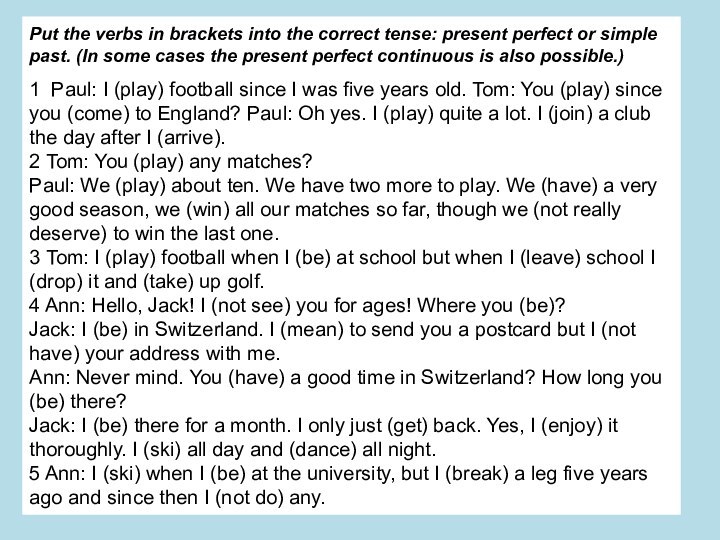
tense: present perfect or simple past. (In some cases
the present perfect continuous is also possible.)
1 Paul: I (play) football since I was five years old. Tom: You (play) since you (come) to England? Paul: Oh yes. I (play) quite a lot. I (join) a club the day after I (arrive).
2 Tom: You (play) any matches?
Paul: We (play) about ten. We have two more to play. We (have) a very good season, we (win) all our matches so far, though we (not really deserve) to win the last one.
3 Tom: I (play) football when I (be) at school but when I (leave) school I (drop) it and (take) up golf.
4 Ann: Hello, Jack! I (not see) you for ages! Where you (be)?
Jack: I (be) in Switzerland. I (mean) to send you a postcard but I (not have) your address with me.
Ann: Never mind. You (have) a good time in Switzerland? How long you (be) there?
Jack: I (be) there for a month. I only just (get) back. Yes, I (enjoy) it thoroughly. I (ski) all day and (dance) all night.
5 Ann: I (ski) when I (be) at the university, but I (break) a leg five years ago and since then I (not do) any.
Слайд 6
6 When I first (come) to this house,
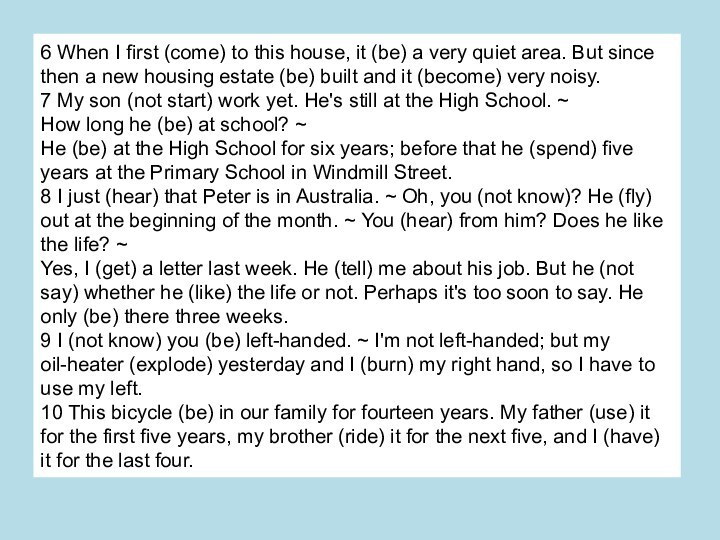
it (be) a very quiet area. But since then
a new housing estate (be) built and it (become) very noisy.
7 My son (not start) work yet. He's still at the High School. ~
How long he (be) at school? ~
He (be) at the High School for six years; before that he (spend) five years at the Primary School in Windmill Street.
8 I just (hear) that Peter is in Australia. ~ Oh, you (not know)? He (fly) out at the beginning of the month. ~ You (hear) from him? Does he like the life? ~
Yes, I (get) a letter last week. He (tell) me about his job. But he (not say) whether he (like) the life or not. Perhaps it's too soon to say. He only (be) there three weeks.
9 I (not know) you (be) left-handed. ~ I'm not left-handed; but my oil-heater (explode) yesterday and I (burn) my right hand, so I have to use my left.
10 This bicycle (be) in our family for fourteen years. My father (use) it for the first five years, my brother (ride) it for the next five, and I (have) it for the last four.
Слайд 7
11 I hear that your MP, Mr Simpson,
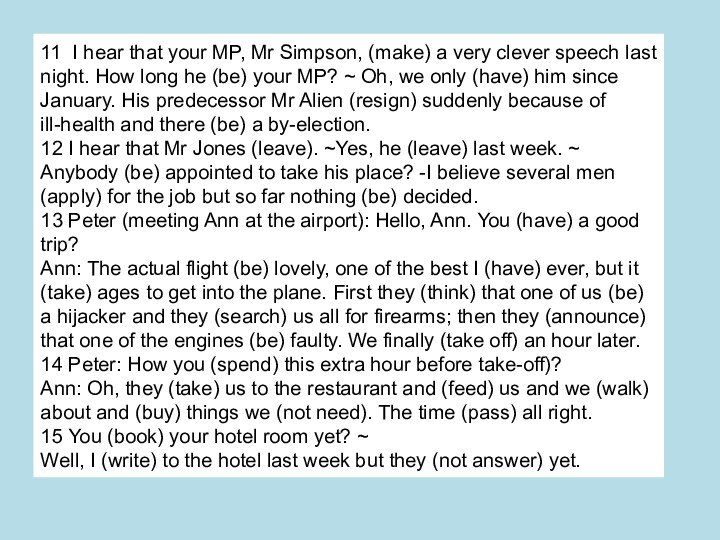
(make) a very clever speech last night. How long
he (be) your MP? ~ Oh, we only (have) him since January. His predecessor Mr Alien (resign) suddenly because of ill-health and there (be) a by-election.
12 I hear that Mr Jones (leave). ~Yes, he (leave) last week. ~ Anybody (be) appointed to take his place? -I believe several men (apply) for the job but so far nothing (be) decided.
13 Peter (meeting Ann at the airport): Hello, Ann. You (have) a good trip?
Ann: The actual flight (be) lovely, one of the best I (have) ever, but it (take) ages to get into the plane. First they (think) that one of us (be) a hijacker and they (search) us all for firearms; then they (announce) that one of the engines (be) faulty. We finally (take off) an hour later.
14 Peter: How you (spend) this extra hour before take-off)?
Ann: Oh, they (take) us to the restaurant and (feed) us and we (walk) about and (buy) things we (not need). The time (pass) all right.
15 You (book) your hotel room yet? ~
Well, I (write) to the hotel last week but they (not answer) yet.
Слайд 8
Put the verbs in brackets into the correct
tense: present perfect simple or present perfect continuous.
1 Peter:
You (telephone) for ages. You not nearly (finish)?
Jack: I (not get) through yet. I (try) to get our Paris office but the line (be) engaged all morning.
2 Ann (fail) her driving test three times because she's so bad at reversing. But she (practise) reversing for the last week and I think she (get) a bit better at it.
3 Tom: I often (wonder) why Bill left the country so suddenly. Peter: Actually, I just (find) out.
4 He (play) the bagpipes since six o'clock this morning. He only just (stop).
5 Why you (not bring) me the letters for signature? You (not type) them yet?
Слайд 9
6 Tom (looking up absent-mindedly as Mary comes
in): You (sunbathe)? Mary (crossly): Don't be ridiculous! It
(rain) all day!
7 A pair of robins (build) a nest in the porch since last week. I (watch) them from my window since they began.
8 The police (not find) the murderer yet, but the dead man's brother (be) in the station all day. The police say that he (help) them with their enquiries.
9 They (pull) down most of the houses in this street, but they (not touch) the old shop at the corner yet.
10 Tom is convinced that there is gold in these hills but we (search) for six months and (not see) any sign of it.
Слайд 10
Make questions for which the following would be
reasonable answers. Ask about the words in bold type.
1
They went to New York.
2 It takes four hours to get there.
3 I didn't think much of it.
4 He earns a hundred pounds a week.
5 He (Tom) was fined ten pounds.
6 It (my room) is twice as big as yours.
7 They left the country ten years ago.
8 They came by bus.
9 I've been here for two months.
10 They (the students) went to the museum yesterday.
Слайд 11
11 It (the car) does fifty to the
gallon.
12 He met her in a coffee bar.
13 They
(the neighbours) complained about the smell.
14 He (the clerk) made him fill up a form.
15 The pigs ate them (the apples).
16 He got in by climbing over the wall.
17 John bought them (the tickets).
18 They (the roads) were very crowded.
19 I smoke forty (cigarettes) a day.
20 It (the hotel) was awful.
Слайд 12
Put the transitive verbs into the passive voice.
Do not mention the agent unless it seems necessary.
1
The milkman brings the milk to my door but the postman leaves the letters in the hall.
2 In future, perhaps, they won't bring letters to the houses, and we shall have to collect them from the Post Office.
3 People steal things from supermarkets every day; someone stole twenty bottles of whisky from this one last week.
4 Normally men sweep this street every day, but nobody swept it last week.
5 The postman clears this box three times a day. He last cleared it at 2.30.
6 Someone turned on a light in the hall and opened the door.
7 Women clean this office in the evening after the staff have left; they clean the upstairs offices between seven and eight in the morning.
8 We never saw him in the dining-room. A maid took all his meals up to him.
9 Someone left this purse in a classroom yesterday; the cleaner found it.
10 We build well over 1,000 new houses a year. Last year we built 1,500.
Слайд 13
11 We serve hot meals till 10.30, and
guests can order coffee and sandwiches up to 11.30.
12
Passengers leave all sorts of things in buses. The conductors collect them and send them to the Lost Property Office.
13 An ambulance took the sick man to hospital. (Mention ambulance.)
14 We kill and injure people on the roads every day. Can't we do something about this?
15 Dogs guard the warehouse. The other day a thief tried to get in and a dog saw him and chased him. (A thief who . . .)
16 The watchman called the police. The police arrested the man.
17 Tom had only a slight injury and they helped him off the field; but Jack was seriously injured and they carried him off on a stretcher. (Tom, who had. . . , but Jack, who was . . .)
18 You can't wash this dress; you must dry-clean it.
19 They are demolishing the entire block.
20 He recommends fitting new tyres. (Use should)
Слайд 29
Social English. Greetings. Introduction
Слайд 32
Greetings and introduction
Hello (Hi infml). How are
you? How are you doing? How are you getting
on? How are you getting along? How are things? What’s new with you?
I am fine (OK). Thank you. And you? (And what about you?)
I am fine too.
Good morning (before 12). Good afternoon (before 6 p. m.). Good evening.
How do you do? – How do you do? Pleased to meet you. – Pleased to meet you too.
I haven’t seen you for ages. Long time no see (infml). It’s been a long time.
What are you? (old fash) What’s your job? What do you do? What do you do for a living?
Conversation starters: What does your job involve? What are your duties (responsibilities?)
